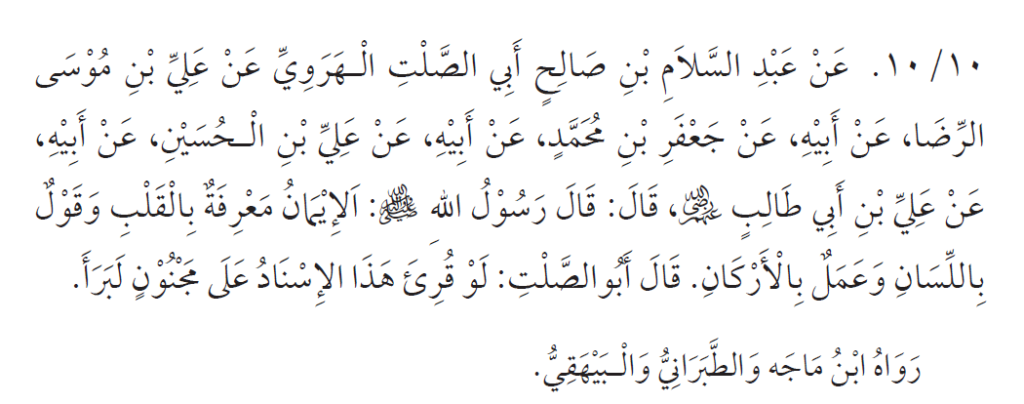Imam Ja’far al-Sadiq(RA) (80-148 AH) was a pious scholar and the great-great-grandson of the Prophet Muhammad [peace and blessings be upon him] from his father’s side. He was also the great-grandson of Hadrat Abu Bakr (Allah be pleased with him) from his mother’s side and had great respect and love for him. He was a master in exegesis{Tafseer} of the Quran, a scholar of jurisprudence{Fiqh}, and one of the greatest scholars qualified to give legal decisions in Madinah .Imam Jafar (Radiyallahu anhu) acquired both the external religious knowledge, as well as the internal confirmation of its reality in the heart. The latter was reflected in his many visions and miraculous powers , too numerous to tell. He spent his life in worship and acts of piety for the sake of God. He rejected all positions of fame in favor of isolation from the mundane world. In him was reflected the light of the knowledge of Truth and Reality. That light shone forth and that knowledge was spread widely through him during his lifetime. He was from the generation of the Followers (Tabi’een) and would narrate hadiths, most of which he had heard from his father, to a large number of prominent scholars such as Imams Malik, Abu Hanifa and Sufyan al-Thawri, may Allah be pleased with them. ►[Sawa’iq al-Muhriqa, Ibn Hajr al-Haytami].

According to Imam Abd al-Salam b. Ali Abu al-Salt al-Harawi—on the authority of Imam Ali b. Musa al-Rida on the authority of his father—on the authority of Imam Jafar b.Muhammad—on the authority of his father—on the authority of Imam AlÏ b. al-Husayn—on the authority of his father—on the authority of the Imam Ali b. Abi Talib , Allah’s Messenger(peace be upon him) said: “Faith is knowing (i.e., attaining to gnosis) with the heart, speaking (i.e., affirming) with the tongue, and acting in accordance with the basic religious principles [arkan].”[•Ibn Majah in al-Sunan: Introduction, Ch.: Faith [al-Iman], 1/25 §65. •al-Tabarani in al-Mu’jam al-Awsa~, 6/226 §6254, and in al-Mu¢jam al-Awsa~, 8/262 §8580. •al-BayhaqÏ in Shu’ab al-Iman, 1/47 §16. •al-Kin¥nÏ in Misbah al-Zujaja, 1/21 §23. •al- SuyutÏ in Sharh Sunan Ibn Majah, 1/8 §65. •Ibn al-Qayyim in Hashiya al¥-Sunan Abi Dawud, 2/294. •al-MarwazÏ in TazÏm Qadr al-Salat, 2/742.
Imam Abu al-Salt (the spiritual master of Imam Ibn Majah) said: “If this chain of transmission were read to a madman, he would surely recover his senses!” Reported by Ibn Majah, al Tabarani and al- Bayhaqi.

Significance of Isnad (chain of authority and transmission of knowledge)
This saying of al-Imam Muhammad ibn Sirin was narrated by Ibn Abi Shayba with some different words: “The science of chain of authority and narration of hadith is din itself. You should check whom you are receiving it from.”[Related by Ibn Abi Shayba in al-Musannaf, vol. 5, p. 334 # 26636]
al-Imam Muslim quotes from amir al-mu’minin fi’l-hadith ‘Abdu’llah ibn al-Mubarak, who states:“Al-Isnad (the chain of authority) is a necessary part of din. If there was no chain of authority then everyone would have said whatever he wanted to say.”[Related by Muslim in al-Muqaddima (preface) to his as-Sahih, vol. 1, p. 15.]
Al-Imam Muslim elaborated further from al-Imam ‘Abdu’llah ibn al-Mubarak, who says:“Between us and between the people who receive from us there are pillars of reliance and these are the chains of authority.”[Related by Muslim in al-Muqaddima (preface) to his as-Sahih, vol. 1, pp. 15, 16.]


